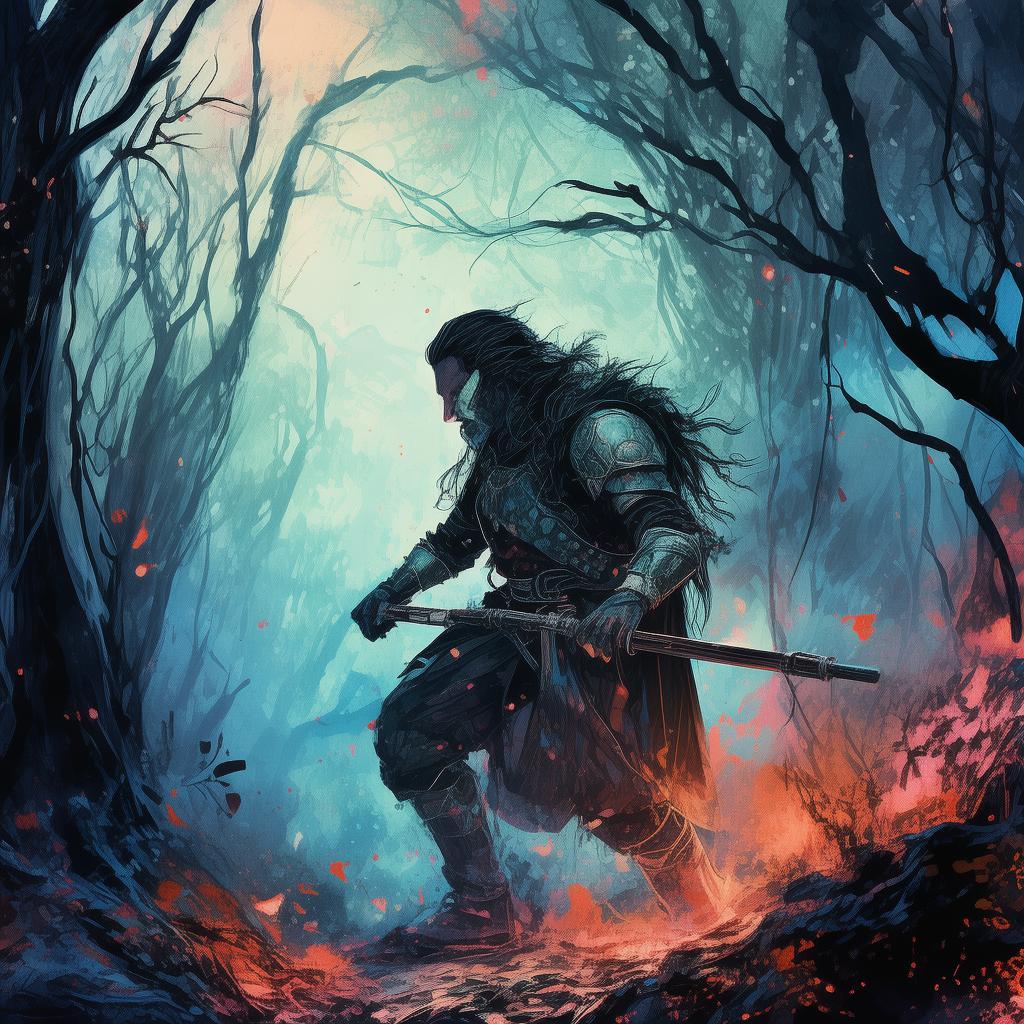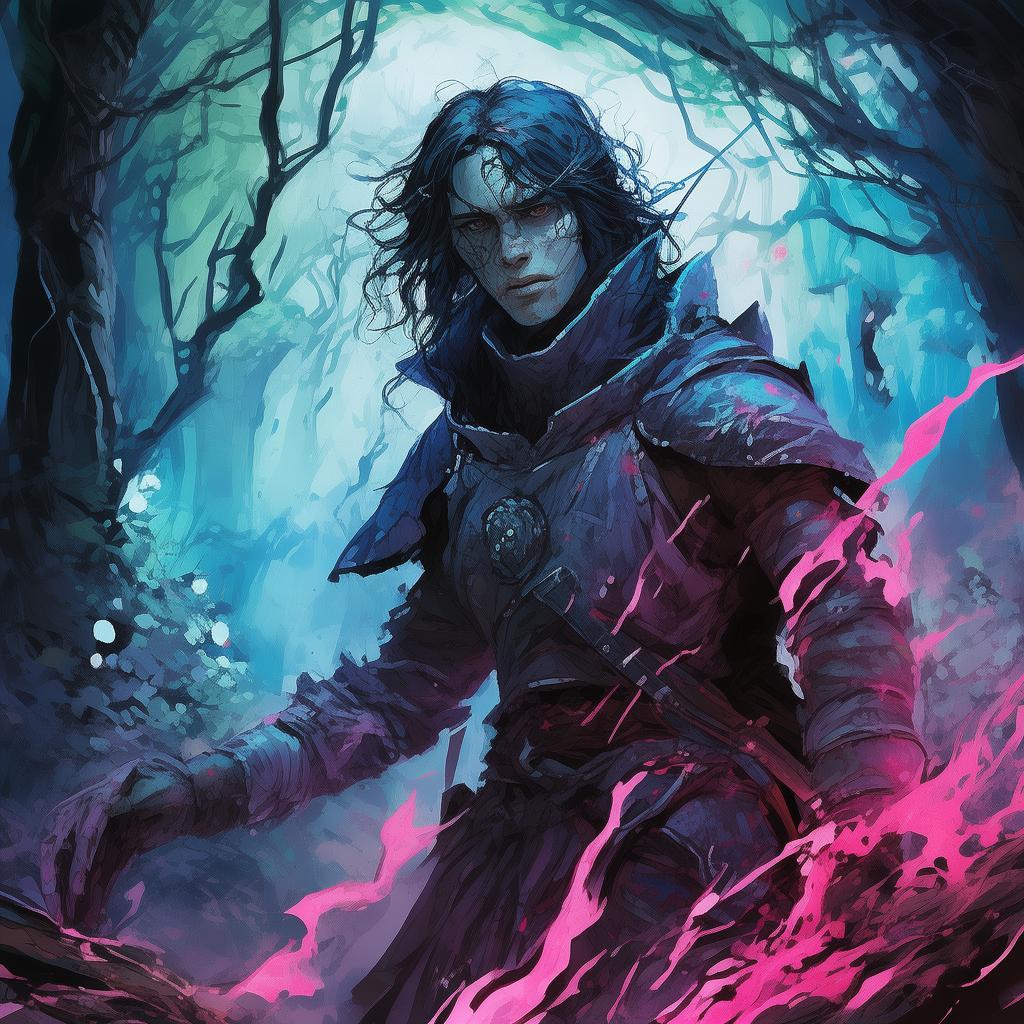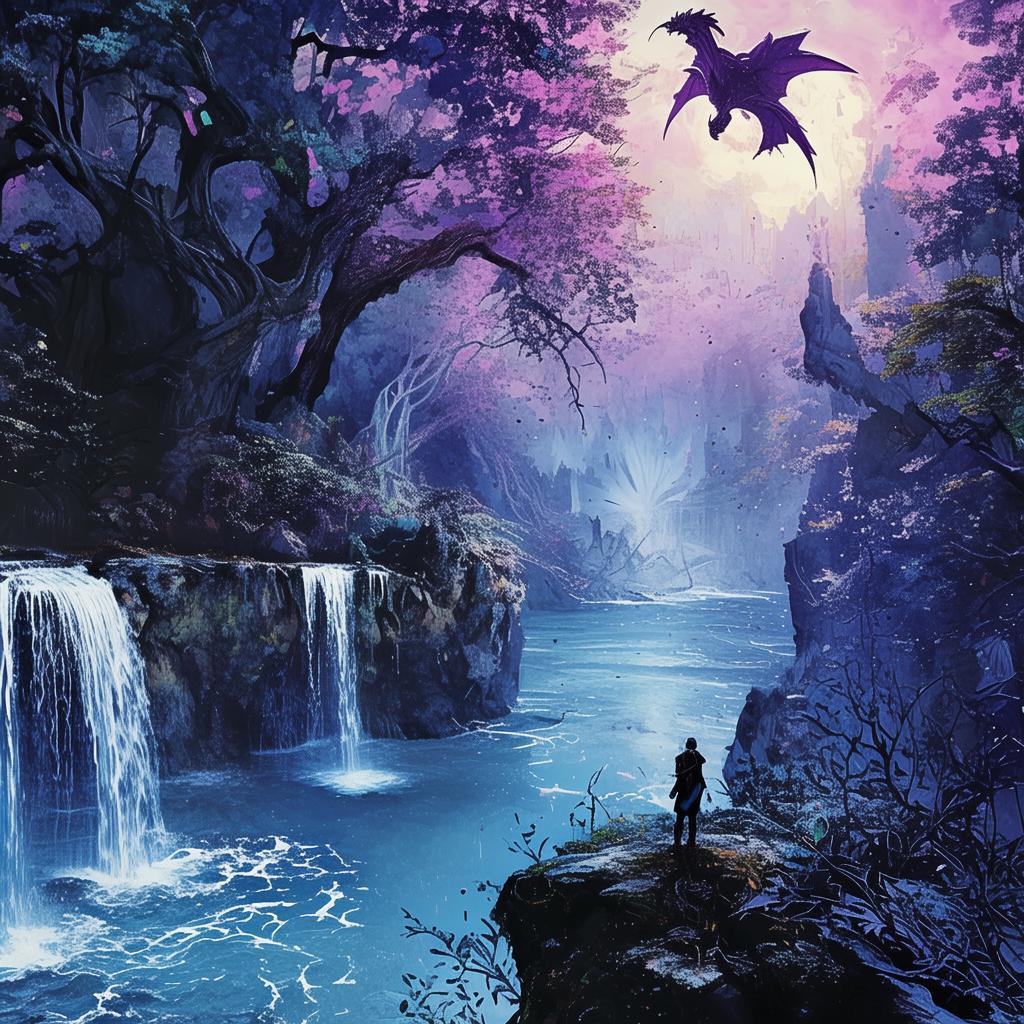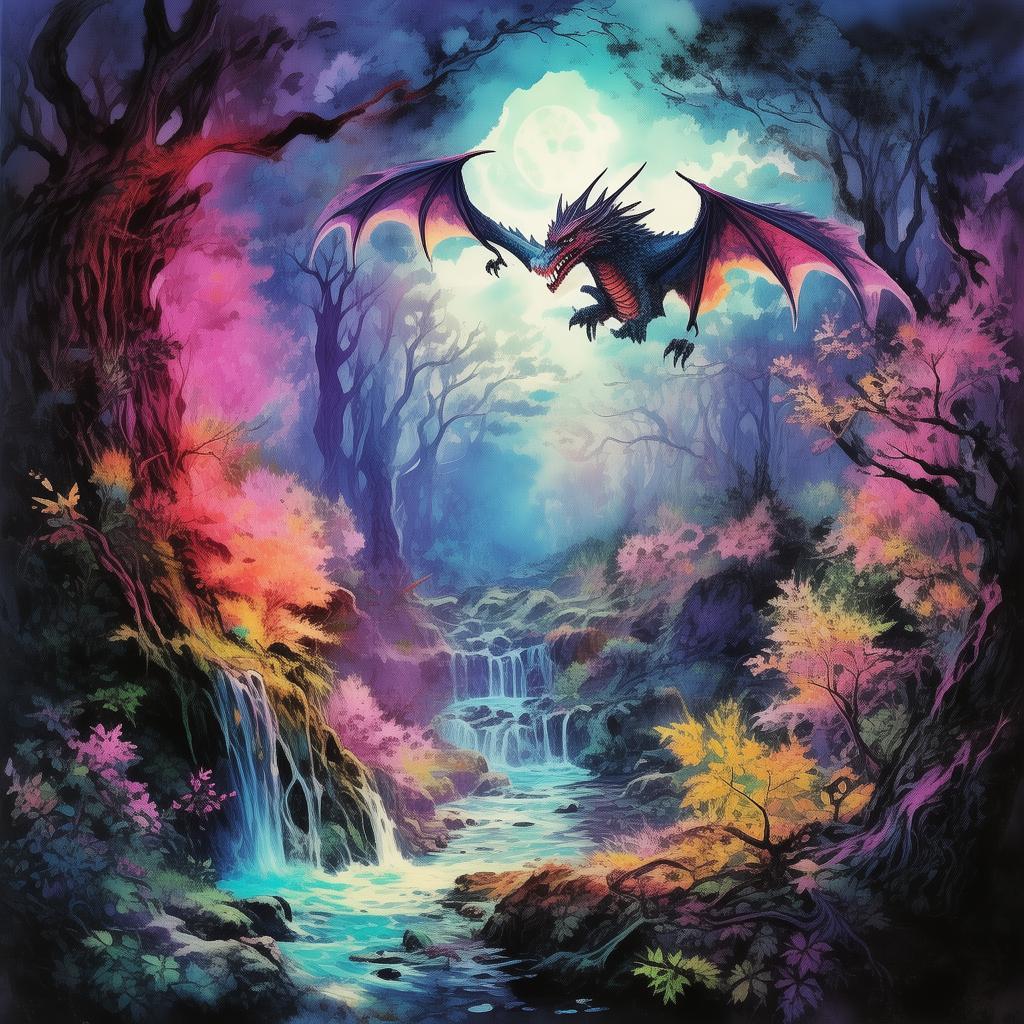The Reckoning of the Soul: The Cultivator's Qingming
The air was thick with the scent of blooming willows and the faint aroma of burning incense as the cultivator, Li Chun, stepped into the ethereal realm. The Qingming Festival, a time of remembrance and respect for the deceased, had brought him to this peculiar afterlife, a place where the living and the dead intertwined in a tapestry of fate and consequence.
Li Chun had spent a lifetime cultivating his soul, seeking enlightenment and immortality. Yet, as he wandered through the shadowy alleys of the afterlife, he found himself face to face with the specter of his past—a ghostly figure that bore an uncanny resemblance to him. It was his younger self, the one who had taken a life in a fit of rage, a deed that had haunted him ever since.
The spirit of his younger self beckoned him further into the afterlife, guiding him through the realm of the Qingming. They passed through a sea of flames, where the souls of the wicked were purified, and through a field of blossoming cherry blossoms, where the souls of the virtuous found peace. Li Chun's heart raced with fear and remorse as he realized that every soul he encountered was a reflection of his own actions.
In the heart of the afterlife, they reached the Court of Reckoning, a grand hall where the souls were judged. Li Chun's spirit was greeted by the King of the Dead, an ancient figure with a face etched with wisdom and sternness. The King demanded an accounting of Li Chun's life, asking him to face the consequences of his past actions.

Li Chun recounted his tale, detailing his journey from a young, impulsive cultivator to the mature soul he had become. He spoke of the lessons he had learned, the virtues he had cultivated, and the wisdom he had gained. Yet, the King was not swayed by his words. He pointed to the specter of his younger self, a constant reminder of the life he had taken.
The King decreed that Li Chun must undergo a trial to prove his worthiness of redemption. He was to confront the soul of the man he had killed, a man who had been unjustly accused and executed. The King explained that the true test of a cultivator's soul was not in the strength of their cultivation but in the purity of their heart and the integrity of their actions.
Li Chun's spirit was transported back to the moment of his crime, to the dark alley where he had taken the life of an innocent man. The scene was reenacted before him, the sound of the man's cries echoing in his ears. As the man's lifeless body lay before him, Li Chun felt a wave of sorrow and regret wash over him.
The King appeared once more, his face softening. "You have come to terms with your past," he said. "But the soul you took was not just a man; it was a son, a brother, a friend. To truly atone, you must confront the pain of those left behind."
Li Chun was then shown visions of the man's family, his wife and children, who were left in despair and confusion by his death. The pain of the man's loved ones was a mirror to Li Chun's own guilt, and he realized that redemption was not just about absolving himself but about healing the wounds he had caused.
The King nodded, satisfied with Li Chun's journey. "Your soul has been purified," he declared. "You have shown that you are capable of change and growth. Now, return to the world of the living and continue to cultivate your virtue."
Li Chun awoke in his own body, the journey through the afterlife a vivid dream that had left him forever changed. He knew that he had been given a second chance, and he vowed to live a life of compassion and wisdom, to make amends for his past mistakes, and to help others find their own paths to redemption.
The Qingming Festival passed, and Li Chun returned to his life, his spirit lighter and his heart more open. He used his newfound wisdom to help those in need, to teach others the lessons he had learned, and to ensure that the cycle of karma would not repeat itself.
And so, the legend of the Cultivator's Qingming spread far and wide, a tale of redemption and the power of the soul to change and grow, even in the face of the deepest regret.
✨ Original Statement ✨
All articles published on this website (including but not limited to text, images, videos, and other content) are original or authorized for reposting and are protected by relevant laws. Without the explicit written permission of this website, no individual or organization may copy, modify, repost, or use the content for commercial purposes.
If you need to quote or cooperate, please contact this site for authorization. We reserve the right to pursue legal responsibility for any unauthorized use.
Hereby declared.









